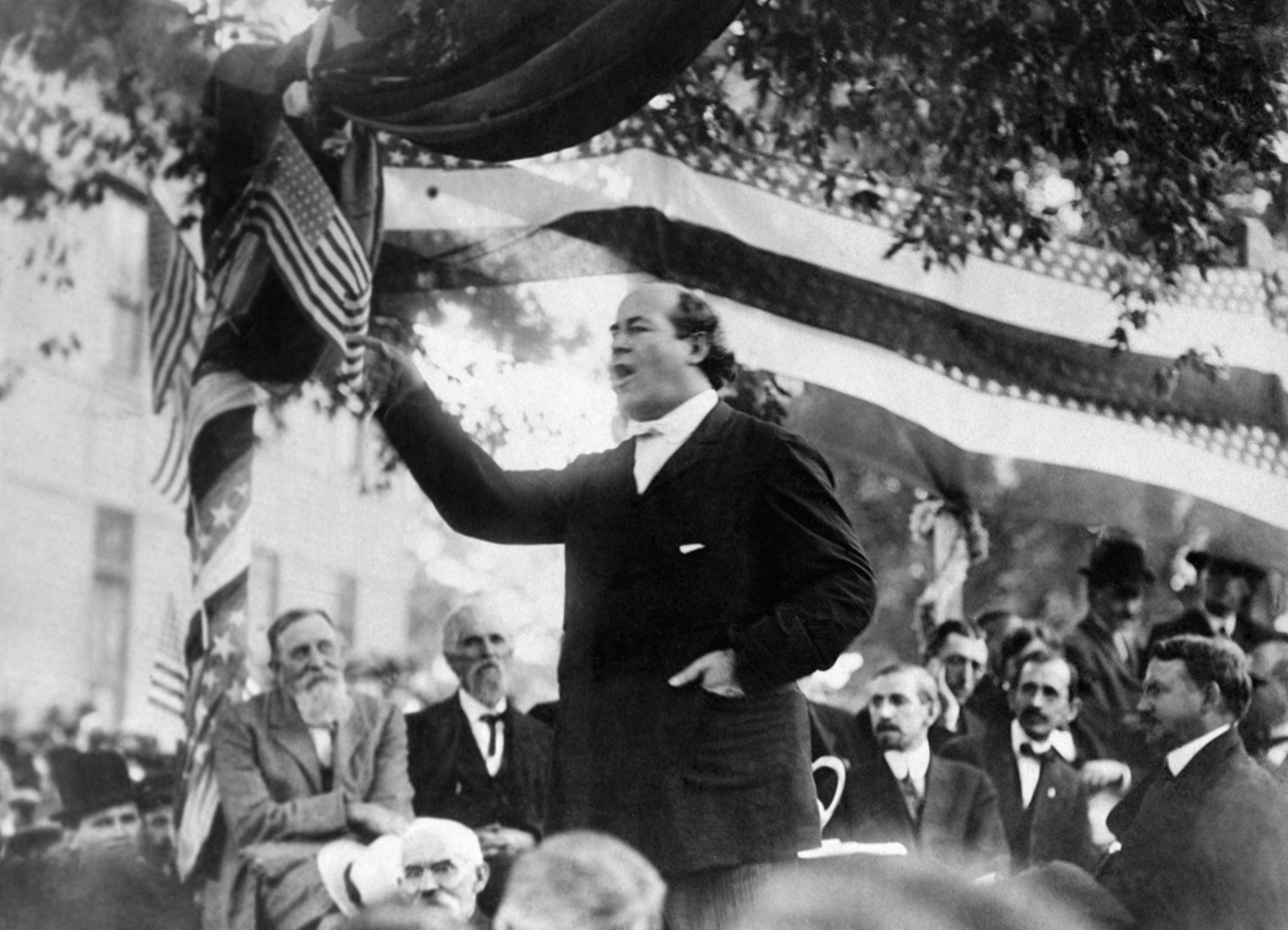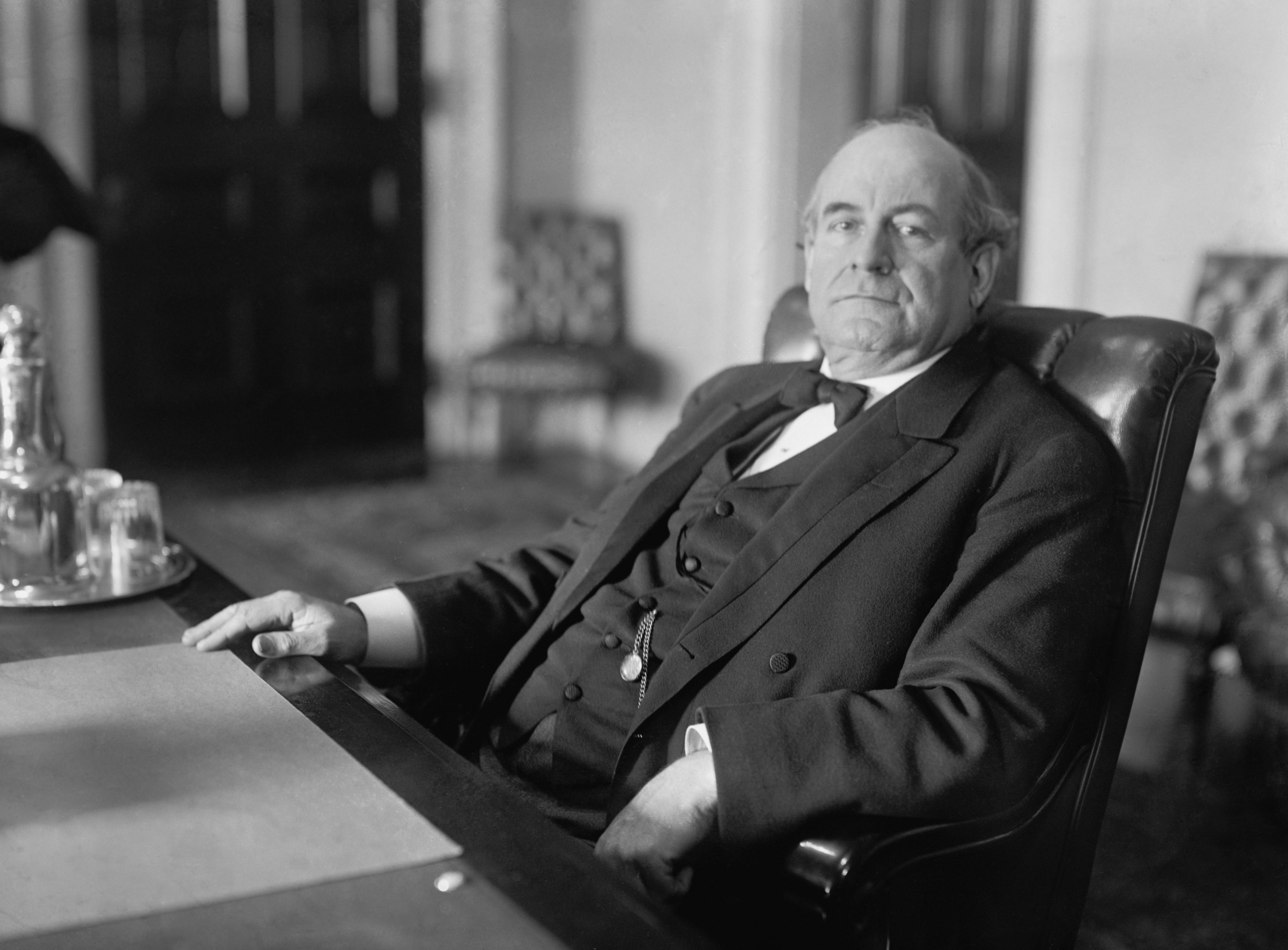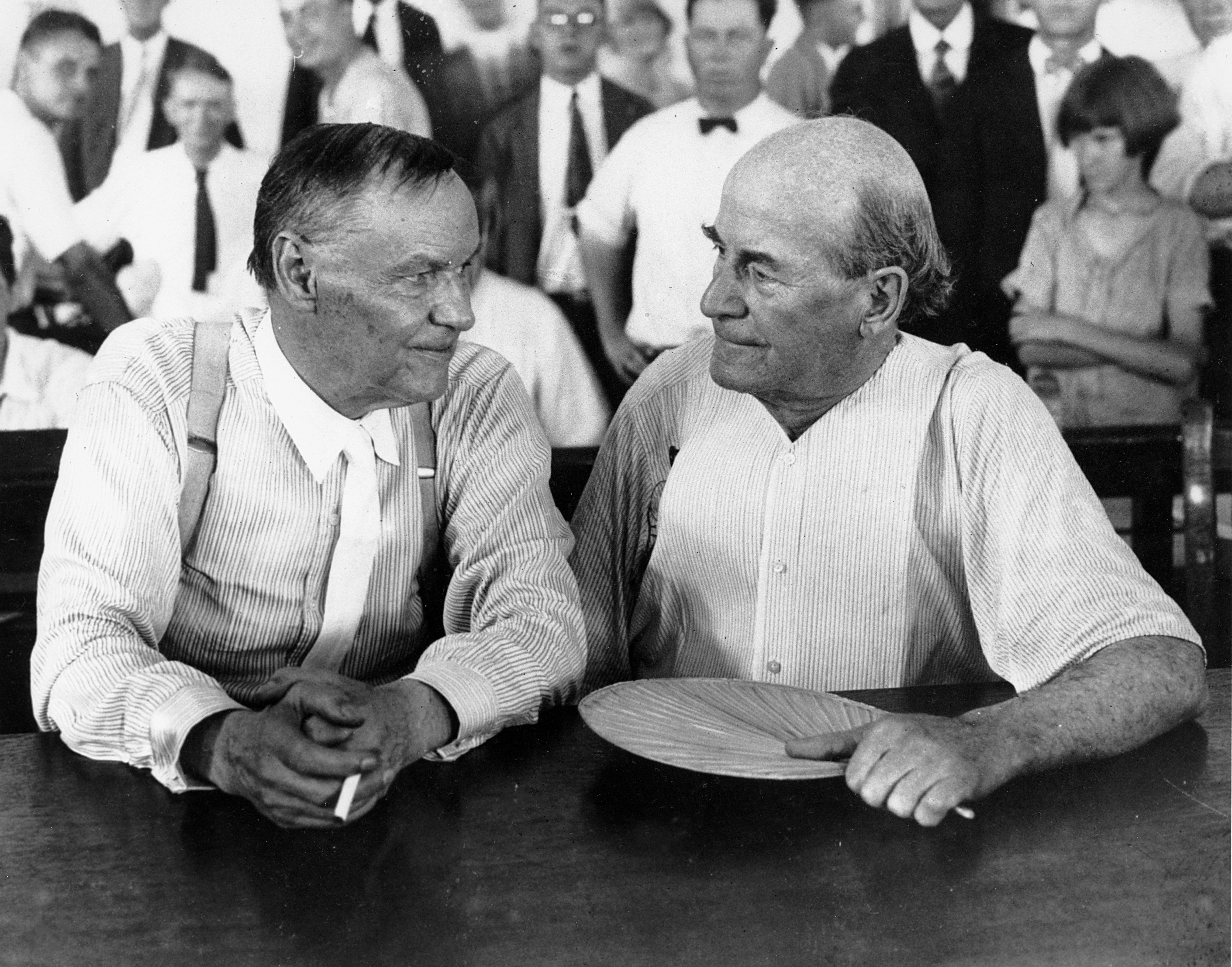
Bryan, William Jennings (1860-1925), was a noted orator and statesman. A Democrat, he ran unsuccessfully for president of the United States three times. Bryan championed popular causes and was proud of his nickname, “The Commoner.”
Early career.
Bryan was born on March 19, 1860, in Salem, Illinois. He graduated from Illinois College in Jacksonville and the Union College of Law in Chicago. He practiced law in Jacksonville for four years. In 1887, he moved to Lincoln, Nebraska. From 1891 to 1895, he served Nebraska in the U.S. House of Representatives, where he opposed the gold standard and urged the free coinage of silver (see Free silver ; Gold standard ). Bryan ran unsuccessfully for U.S. senator in 1894. He then became editor of the Omaha World-Herald and lectured on the money question.

As a delegate to the Democratic National Convention in Chicago in 1896, Bryan wrote the free-silver plank of the platform. During the debate that followed, he delivered a famous speech. In a dramatic conclusion, Bryan said: “Having behind us the producing masses of this nation and the world, supported by the commercial interests, the laboring interests, and the toilers everywhere, we will answer their demand for a gold standard by saying to them: You shall not press down upon the brow of labor this crown of thorns, you shall not crucify mankind upon a cross of gold.” Bryan’s leadership of the silver forces led to his nomination for the presidency, though he was only 36 years old.
Democratic Party leader.
During the presidential campaign, Bryan made over 600 speeches in 27 states. Conservative Easterners became alarmed that he might win, and they provided huge campaign funds for William McKinley, the Republican candidate. McKinley favored the gold standard. Although Bryan carried the South and most of the states west of the Mississippi River, McKinley won.
In 1900, Bryan was again the Democratic candidate. He based his campaign largely on opposition to American annexation of the Philippines, but McKinley won by a larger majority than before. In 1908, Bryan ran for the third time, but lost to William Howard Taft.
Despite his election defeats, Bryan had a great deal of influence within the Democratic Party. Under his leadership, the party worked to solve national problems caused by the rise of big business and the growth of cities. Reforms championed by Bryan included the establishment of an income tax, voting rights for women, direct election of U.S. senators, and government regulation of business practices. From 1901 to 1923, Bryan published The Commoner, a newspaper in which he expressed his views.
Later years.
After Woodrow Wilson became president in 1913, he appointed Bryan secretary of state. In this post, Bryan helped Wilson carry out domestic reforms. Bryan also negotiated 30 treaties that required nations to investigate international disputes before going to war. The U.S. Senate ratified all but two of these treaties, but they have never been used.
Bryan resigned as secretary of state in 1915, because he feared that Wilson’s strong protests against Germany’s sinking of the Lusitania might involve the United States in World War I (1914-1918). Bryan thought the United States should remain neutral. But when the country finally went to war against Germany in 1917, Bryan loyally supported the military effort. At the end of the war, he called for the United States to join Wilson’s proposed League of Nations.
Bryan moved to Miami, Florida, in 1920. He continued to be one of the most popular lecturers in the United States. Bryan strongly supported the literal interpretation of the Bible, and prohibition of the liquor trade.
Loading the player...Scopes trial
Bryan’s religious fundamentalism involved him in the famous trial of John Scopes, a schoolteacher who had been arrested and charged with teaching evolution in a Tennessee public school, contrary to state law. Bryan assisted the prosecution against Clarence Darrow, a famous lawyer who defended Scopes. Bryan won the case. However, he died on July 26, 1925, in Dayton, Tennessee, while resting after the trial. From 1937 to 2019, a statue of Bryan represented Nebraska in Statuary Hall in the U.S. Capitol.

Bryan wrote many articles and speeches on economic, political, and religious topics. His books include The First Battle: A Story of the Campaign of 1896 (1896) and The Memoirs of William Jennings Bryan (1925), completed by his wife, Mary Baird Bryan, after Bryan’s death.
